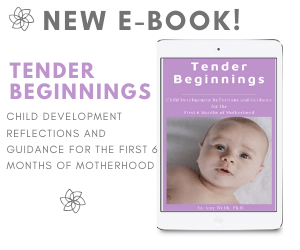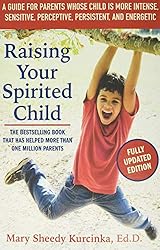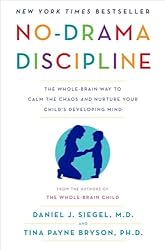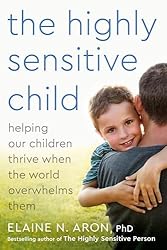[ad_1]
{Little one temperament is a typical matter of curiosity amongst new mom and father. Dad and mother marvel if temperament predicts one thing about their future enchancment. We delve into the evaluation on “powerful” baby temperament to uncover its long-term have an effect on on enchancment}
When my youthful son was an toddler, I took him with me to one amongst his older brother’s preschool occasions. He and I crowded into the little classroom along with plenty of totally different moms. As we helped the lecturers exit drinks and snacks, I set my son down on the carpet so he would possibly switch spherical.
Switch spherical he did!
Rapidly he found a spare chair and commenced pulling up on it. Then he made is method, by scooting and crawling, to the play kitchen. Rapidly enough, he starting throwing the play meals out of the cabinets, piece by piece.

About that time I noticed that one different mom had launched her baby that was concerning the similar age. It didn’t take prolonged for me to notice that whereas my son was systemically destroying the room, her son was sitting subsequent to her contently cooing and chewing on a teether. The alternative mom and I started chatting and she or he commented on the energetic nature of my son (in a pleasing method). We in distinction notes and found that our two infants have been born solely days apart. In precise truth, we found that they’ve been delivered on the similar hospitals and that now we have been possibly inside the maternity ward on the similar time!
We’ve been ending the event by that point and I had lastly resorted to putting my son into the toddler service strapped to my chest so I’d help clear up.
I left the event feeling a bit flustered and questioning: how can two infants born days apart be so completely totally different?
In actual fact, behind my teen development-trained ideas, I knew the reply: temperament.
Nonetheless what of these two infants futures? Dad and mother usually marvel if baby temperament has long-term outcomes on the course of their teen’s enchancment.

Evaluation on Little one Temperament
If you’ve been a mom or father for various months, {{that a}} baby’s temperament is obvious fairly early on. Although they don’t seem to be talking however, infants have a method of letting their preferences with regard to holding positions, actions, and the amount of stimulation they’re going to cope with.
Equally, in case you’ve a few teen, you moreover discover how dramatically infants’ temperaments can differ from teen to teen.

Throughout the evaluation world, this recognition that baby temperament is a key situation in enchancment is obvious inside the sheer amount of research that options temperament as a component of curiosity. By the use of the years, various questionnaires and observational strategies have been used to judge baby temperament. On the entire, nonetheless, all these devices assess numerous the similar basic traits of temperament which were first developed by researchers Thomas and Chess inside the Nineteen Sixties. These traits embrace:
- train diploma—vitality diploma of the child
- approach-withdrawl—how teen preliminary responds to a model new setting
- mood—teen’s primary tendency to be comfy or unhappy
- rhythmicity—how widespread are the child’s bodily/natural patterns (e.g., consuming, sleeping)
- persistence—teen’s capability to stay with a tricky course of
- consideration span—teen’s capability to cope with one course of for a dimension of time
- adaptability—teen’s capability to manage to modifications in routine
- threshold—teen’s capability to cope with exterior stimuli (e.g., loud noises)
- depth—teen’s tendency to emotionally react strongly or a lot much less strongly to events
- distractibility—the diploma to which a child is unquestionably distracted from a course of or train
Primarily based totally on these dimensions, Thomas and Chess characterised children into one amongst three courses of temperament: “powerful,” “easy,” and “sluggish to warmth up.”

Of their look at, 65% of children could be categorised into one amongst these courses, so one different class of “unable to classify” was created for the remaining 35%. Thomas and Chess found that of their preliminary look at:
40% of the kids fell into the “easy” class,
10% into the “powerful” class and
15% into the “sluggish to warmth up” class.
Later, these researchers acknowledged that these classifications must be thought-about a lot much less as discrete courses nevertheless further of a continuum alongside which children fell. So a child is usually not clearly “powerful” or clearly “easy” nevertheless someplace alongside the continuum from “powerful” to “easy.”
Want to examine further about children’s temperament? Check out this new toolkit for people!
By the years, the labels and assessments have modified, nevertheless the idea is similar. By the best way wherein, I usually don’t choose to label infants as “easy” or “powerful” nevertheless these are the usual temperamental courses. Merely know that these aren’t meant as a commentary on the toddler’s top quality as a human, nevertheless solely a temperamental label.
Looking at these traits, are you able to determine the form of temperament your teen would possibly be categorized into? Want to uncover out further?
Take the transient Temperament Quiz to search out further about your teen.
Related finding out: The Paintings and Science of Elevating a Delicate Boy (with out crushing his spirit)
How Do “Troublesome” Infants Flip Out?
That’s the question that people largely ask: how do “powerful” infants find yourself as children and adults? In actual fact, this could be a tough question on account of so many elements impact enchancment along with merely temperament. However, we have got some truly compelling evaluation coming out that does shed some gentle on this question.
Solely a remember proper right here regarding the evaluation I present proper right here: that’s solely a snapshot of a massive physique of research on temperament. Each of these analysis, whereas compelling, does not current the complete picture. That being acknowledged, the reality that these 3 analysis all end up with comparable findings, solely supplies to their credibility.
Toddlerhood
For example, one look at checked out children from starting to age two and tried to understand how their temperament blended with completely totally different parenting approaches influenced their habits. What they found was fascinating. Infants who’ve been further irritable as infants have been merely as extra prone to be sociable and outgoing as toddlers, given one crucial situation: the top quality of attachment with their mothers.
In numerous phrases, if these irritable infants had a secure attachment with their mother (or foremost caregiver), they went on to be well-adjusted, sociable toddlers. However, these irritable infants who did not have a secure attachment with their mother, they struggled further in interacting with people and new environments as they grew up.

Why would attachment matter? Evidently for infants with an irritable temperament, they’ve trouble regulating and might get overstimulated merely. As a consequence of this truth, inside the context of secure attachment, their mother helps them regulate their emotions and reactions so that they’re capable of uncover further over time. Throughout the absence of a secure attachment, these irritable infants proceed to battle with regulation while toddlers.
Related finding out: A Mum or dad’s Info to Understanding the 4 Attachment Sorts
Early Childhood
The next fascinating look at on this matter checked out children’s temperament and their habits in first grade. Identical to what we seen inside the earlier look at, children with a “powerful” temperament as infants, have been merely as extra prone to be well-adjusted in first grade if one crucial situation was in place: optimistic, delicate parenting.
As a result of the look at’s author commented, “The vital factor to first-grade adjustment for every powerful and easy infants was good parenting,” acknowledged Anne Dopkins Stright, affiliate professor of human enchancment at Indiana School.
So what does “good parenting” appear to be on this situation (or any situation)? Properly, as a result of the factors of optimistic parenting that you simply simply may depend on: being delicate to the child’s needs, having optimistic regard for the child, providing emotional assist, and supporting their autonomy. All the factors of parenting that we typically deal with proper right here and most teen enchancment books assist.
As soon as extra the reason for these findings comes once more to the character of what it means to have a baby with a “powerful” temperament. These infants are usually further delicate and reactive to their setting and thus are inclined to cry further. With assist and sensitivity from mom and father, nonetheless, these infants develop to check to self-regulate merely along with totally different infants.
On the flipside, nonetheless, infants with a “powerful” temperament who develop up in a setting the place the parenting won’t be delicate to their needs, they’ve an inclination to trustworthy worse in first grade. Dad and mother truly do act as a result of the assist and buffer for irritable infants and in absence of that, these children have a more durable time adjusting.
Teen Years
Lastly, let’s check out how infants with a “powerful” temperament might trustworthy as children. One truly spectacular look at adopted children from the age of 4 months all the best way wherein into {the teenager} years.
As soon as extra, we see an similar pattern of findings. Infants with an inhibited temperament (i.e., fear of unfamiliar situations or social withdrawal) have been further in peril for nervousness points as a teen. However, one of many essential defending elements for these children was…you guessed it–a secure attachment with their caregiver. Toddlers with an inhibited temperament have been a lot much less extra prone to develop nervousness if that they’d a secure attachment with their mother (or foremost caregiver).

How To Help Infants Thrive
All this evaluation elements to 1 clear idea: mom and father matter (a lot). When you’ve a”powerful” baby who cries a lot and is delicate to his/her surroundings, it is tough. I have been there and seen that with every of my boys. Infants with a “powerful” temperament test our endurance, our stamina and sometimes push us to our limits.
Nonetheless guess what? All your effort in supporting them and being delicate to their needs truly does reap nice rewards as they develop. These infants won’t be solely further delicate to the opposed factors of their world, nevertheless they’re moreover further delicate to the entire nice points you current as correctly. This evaluation clearly elements out that the fragile, responsive parenting that you simply simply provide will help them turn into well-adjusted adults.
Two Temperaments, Two Tales
Take into accout these two infants born solely days apart? Properly, the alternative mom and I stayed involved all yr lengthy. Our “enormous boys” and “little boys” had just some playdates collectively and had quite a lot of satisfying collectively. My youthful son continued collectively along with his curious, mischievous temperament and explored every room of their dwelling all through each play date. I consider watching the alternative mom as she jogged collectively together with her son (then about 18 months outdated) in a stroller for miles at a time. I, then once more, struggled to get my son to take a seat down nonetheless in a stroller for 1 / 4 of a mile.

That’s the story of children’s temperament. Each teen has their very personal strengths and it’s our perform as mom and father to look out these strengths. As author Susan Cain says,
“Everyone shines, given the right lighting.”
As mom and father, one crucial privilege we have got helps our kids uncover the methods wherein they shine and data them to look out the “correct lighting” of their world. My son might certainly not be good at sitting nonetheless and he’ll possibly certainly not be passively obedient. Nonetheless he’s fearless, assured, clever and certain, nonetheless a bit mischievous.
In case your baby has a “powerful” temperament and you find yourself secretly longing for an “easy” baby, merely know that one can discover your teen’s strengths. If you look previous the fussiness and patiently await enchancment to take its course, you’ll word the distinctive explicit particular person he or she is meant to be.
Chime in! Has your teen’s temperament remained fairly mounted since infancy? Share inside the suggestions.
And don’t neglect to affix our weekly(ish) e-newsletter .

Helpful Belongings:


A must-read in case you’ve a spirited teen (i.e., strong-willed, persistent, super-active)
My NEW temperament toolkit (encompasses a e-book, quiz, audio teaching and additional). Primarily based totally on evaluation and my non-public experience with “spirited” children.


One different conventional inside the teen enchancment world–extraordinarily actually helpful!


The go-to author in case you’ve a delicate teen–good insights!
Wonderful for Pinning:

[ad_2]
Provide hyperlink


